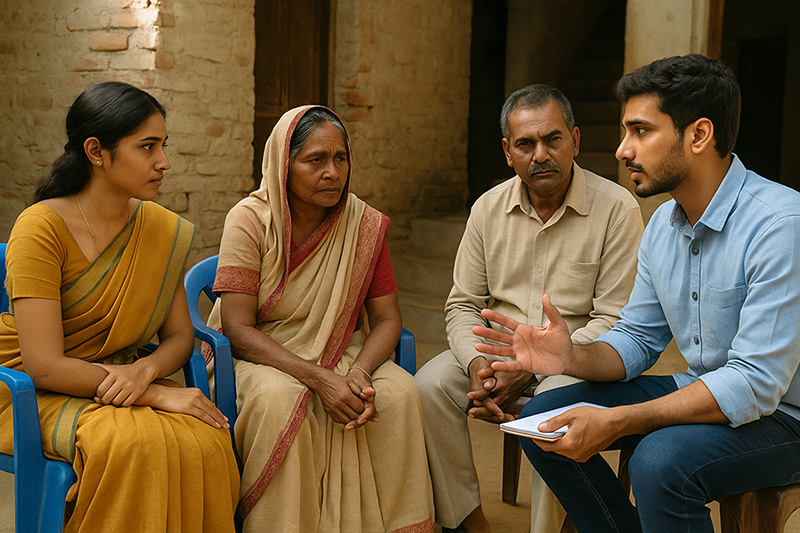Collaboration, not competition, is the emerging philosophy in the social development sector. However, given the celebration (and glorification) of the benefits of competition specially from the corporate sector and the competitive culture imbibed in us by our schooling system, it becomes an almost impossible task to switch tracks to a different life philosophy in mind and in practice.
This article has been originally posted on Youth ki Awaaz
We’ve constantly been told that competition is what exclusively leads to innovation, helps improve efficiency, builds an outcome orientation, brings about human progress but is it really true in all contexts? Does everything need to be a zero-sum game? Let’s try and explore the need for collaboration and a collaborative work ethic specially in the social sector:
- Magnitude of the Problem (Absolute and Relative): ~27 Cr Indians live under extreme poverty (2012, $1.25 per day PPP), 10 Lakh youth are entering the workforce every month (Labour Ministry) looking for productive job opportunities, ~48% of Indian students can’t read books meant for 3 classes below (despite near universal enrolment), Infant mortality of 40 out of 1000 births (2013, Niti Aayog), India ranks 131 out of 185 countries on the Human Development Index (UNDP), India ranks 97 out of 118 countries on the Global Hunger Index (International Food Policy Research Institute)..the numbers are staggering. The humongous scale and magnitude of the issues clearly denotes that they cannot be solved either by individuals or organisations working in isolation.
- Holistic Model of Development: The development sector largely works in an issue based manner with organisations focussing on sectoral (education, rural development, health, environment etc.) interventions to bring about improvements in societal and human conditions. This is partly due to the availability (or lack thereof) of financial resources and technical expertise (while we agree that every sector is important, where do we get the money and the knowledge to deal with different issues?). However human beings and their lives cannot really be split into these sectors. It’s the same person who has an education, health, livelihood or an addiction issue and thereby its imperative for different organisations working in a geography on different issues to come together to pool their physical, financial and knowledge resources to devise a holistic model of development and work together to deliver it. Working in this kind of a collaborative ecosystem would be more sustainable and amenable to scale. It would also help deal with the issue of these problems being “wicked”! (e.g. working only on education in a rural area in the absence of meaningful livelihood creation might lead to excessive migration and the abandonment of social structures)
- System’s view of stakeholders: When dealing with social issues, it’s important to clearly define and understand the overall family of stakeholders being effected by your actions (Who are the various people/organisations which might be directly or indirectly effected by this intervention and thereby might want a say in how its designed and implemented?). Its helps view issues from a broader systemic standpoint thereby creating the possibility of designing interventions which are more inclusive, based on a wider dialogue, accepting of the concerns of a larger system of stakeholders and thereby having a larger chance of success. Interventions like this would require a deep understanding and appreciation of the need to collaborate and take various people ahead together
- Social construction of knowledge in context: Development sector work requires a social construction of knowledge because there is a need for collective meaning-making, in context. This, therefore, means that while there may be a broad Theory of Change about something, it will play out the way it will because people make their own meaning about it. Development Management has a role to play in being able to facilitate the meaning-making process and ensuring that appropriate, contextually relevant outcomes become possible.
Besides the more obvious instrumental reasons for Collaboration, one should not overlook the basic intrinsic reason behind encouraging this work ethic – just the fact that a collaborative society would potentially be a more peaceful and harmonious society based on the efforts of better human beings!
Its clear that the need for collaboration is based on both a number based practical need as well as a conceptual underpinning of how we could potentially look at approaching development issues to ensure good quality sustainable social impact at scale. Am not sure it is an option any more. If we are serious about improving lives and social conditions then it’s imperative that we join hands and collaborate. Else we stand the danger of becoming an irrelevant self-perpetuating sector at the risk of losing its reason for existence.




